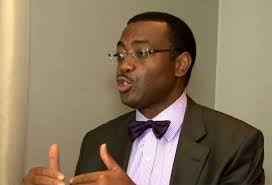The African Development Bank, (AfDB) has expressed concern that Africa may lose as much as 12% of its current Gross Domestic Product (GDP) value by year 2100 if the current trends in climate finance flows into Africa remained sustained.
The development finance institution, in a statement issued on Friday as its governors gathered in Egypt to find ways to mobilize the robust private investment Africa needs to meet its urgent climate change adaptation and mitigation goals, disclosed that the continent faced an annual shortfall that could exceed $127 billion by 2030
The AfDB stated that the theme of this year’s meeting would be ‘Mobilising Private Sector Financing For Climate and Green Growth in Africa’, noting that the theme reflects the growing urgency expressed by Africa’s leaders for a step change in efforts to limit temperature rise to 1.5 °C above pre-industrial levels by 2100.
The governors said: “This is seen as critical to protecting the world’s most vulnerable countries, many of which are in Africa.
“In just over a month, African Development Bank Group governors will come together in Egypt to find ways to mobilize the robust private investment Africa needs to meet its urgent climate change adaptation and mitigation goals.
“During the African Development Bank Group’s 2023 Annual Meetings in Sharm El-Sheikh, the bank group’s governors, executive directors, and African leaders and development partners will discuss successful strategies to galvanize more resources.
“These include those from within their own countries as well as investment opportunities in renewable energy and sustainable agriculture. Some 13 African heads of state and government are expected to attend the meetings” the AfDB governors added.
On their concerns about climate finance flow into Africa and the yearly shortfall, the governors warned: “Africa could lose as much as 12% of GDP by 2100. In comparison, projected losses for the United States and other industrialized countries represent less than 1% of GDP.
“The 2023 Annual Meetings follow on the heels of the 27th global climate summit (COP27) in Sharm El-Sheikh in November 2022. At COP27, the African Development Bank amplified Africa’s voice in calling for global support for a just energy transition, fulfilment of climate finance pledges, and the need to compensate vulnerable countries for losses and damages caused by climate impacts.
“Climate funding by the private sector accounted for 49% (or $310 billion) of the total value of climate finance reached in 2020.
“In contrast, out of $29.5 billion of climate finance flows in Africa in 2020, 80% of climate investment financing was mobilized from public international actors while private sector funding represented only 14%”, they added.
The AfDB governors maintained that more financing would also be needed to implement climate adaptation measures, which includes adoption of climate-smart agriculture and the construction of such infrastructure as roads and bridges, which meets standards of climate resilience, adding that the Annual Meetings will represent a decisive step in attracting more private sector investment into Africa’s clean energy sector.






